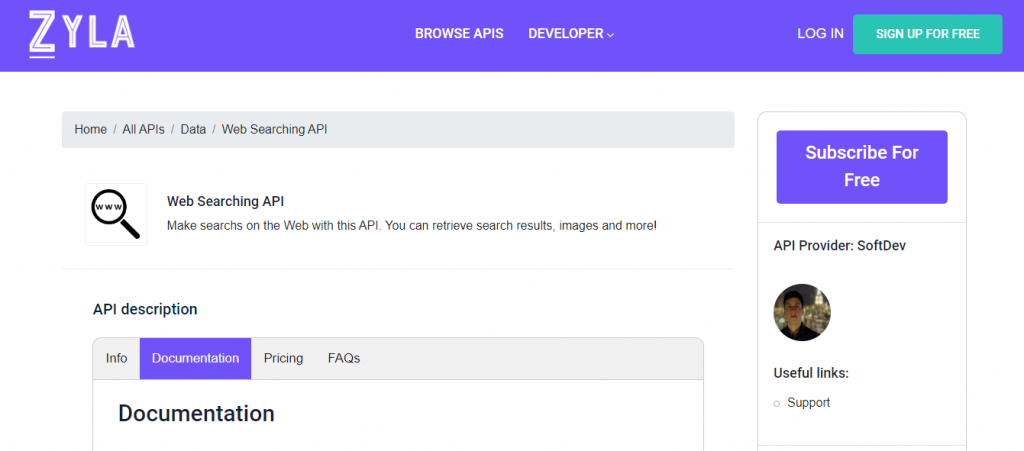Do you need to know about the API Finder but don’t know where to find information and the best tool to use?
Software tools called search APIs let programmers easily add search functionality to websites and applications. They offer backend tools for controlling cluster setups, viewing search metrics, querying various sorts of data, indexing articles, and more.
Quality libraries, software development kits (SDKs), and documentation can aid developers in search implementation, considerably enhancing the developer experience, even though not all Search APIs provide these.
But the advantages go further than that. Businesses that use pre-built website or e-commerce shop builders can frequently connect to these APIs with little to no coding needed. With only a few clicks, even non-technical people can set up a robust search application thanks to Algolia’s plugins for Shopify and Magento, for instance.
Search APIs (application programming interfaces) can be used to integrate online search API search capability into your application, allowing users to access and receive the data that is most relevant to them. Using the APIs, you can design fulfilling search and discovery experiences for your consumers across several platforms.
What Makes Search APIs Crucial?
The best method to reduce time to market while increasing return on investment is using search APIs. This implies that you can give your users the finest search experience with the least amount of work. Additional advantages of utilizing a Search API include:
1- Minimize the development’s complexity. Rather than worrying about the infrastructure of creating and operating a search engine, developers may concentrate on business logic that pertains to their use cases by building on top of existing capability.
2- Make automation easier. Developers may simply integrate the search tools into pre-existing data pipelines and integrations since the infrastructure of the search engine is abstracted away through a straightforward API, allowing data to flow between the systems fast.
3- Control spending. Simply said, it costs money to create a scalable search engine. It’s a highly technical position that calls for programmers with knowledge of intricate disciplines like distributed systems and performance optimization. The ability to outsource these responsibilities and choose the type of developers you require might be quite helpful.

You’ll need a specialized solution to manage, store, and arrange your data so that users can quickly find what they’re looking for. Search APIs can be useful in this circumstance. A developer can enter the entire catalog into a Search API and use it from the website in only a few lines of code.
These 3 APIs are the best and deserve to be included after we reviewed every online search API available:
Web Searching API
In JSON format, the Web Searching API sends search requests and results. It allows you to perform quick and simple searches without a captcha. Additionally, this API allows you to modify the appearance and feel of the search feature in your app, fine-tune the ranking, and add personalized promotions. It also contains descriptions, links, and titles in its search results.

You can do any kind of search using the API, which offers direct access to the Contextual Web search engine. You can filter news using the pagination tool by publication date, online search, or sophisticated web search.
It allows:
1- Online, look for news and pertinent articles on a particular subject.
2- Find relevant and related photographs on a particular topic or issue using just one search.
3- Get web pages regarding a particular subject that are pertinent to your needs.
Search API by 3taps

With the help of the API, you may look up postings on a certain data source based on category, location, or an annotation value. You can use the API in search mode, where it returns a list of postings that match your search, or in count mode, where it returns the total number of entries that match your search. The Search API by 3 taps also uses a tiered search strategy, where the most recent data are obtained first, to improve performance. In order to make managing the search results easier, they are also paginated.
Twitter Search API

Twitter has three levels of search APIs: Standard, Premium, and Enterprise. Standard searches the most recent Tweets submitted within the last seven days. Premium searches the previous 30 days of Tweets. Enterprise searches the previous 30 days of Tweets. Enterprise searches as early as 2006. Data in JSON format is returned.

